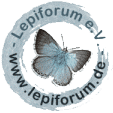

 +8Kontinente:EUAS
+8Kontinente:EUAS2. Biologie
2.1. Nahrung der Raupe
Noch unbekannt! Sehr wahrscheinlich aber Juncus sp. Baldizzone (2019: 373-374) schreibt dazu: "La biologie è sconosciuta, ma probabilmente è simile a quella delle specie dello stesso gruppo. Tabell (com. pers.) a Creta ha trovato larve mature in astucci larvali fissati a uno stelo di Juncus sp. (Juncaceae). [...]".
(Autor: Erwin Rennwald)
3. Weitere Informationen
3.1. Etymologie (Namenserklärung)
Die Art ist nach ihrem locus typicus, dem Berg Taygetos auf der Halbinsel Peleponnes, Griechenland, benannt.
3.2. Typenmaterial
Baldizzone (1983: 242): “Holotypus ♂ “Hellas, Lakonia, Mt. Taygetos, 1000 m., 12.VI.1979, leg. Gosmàny [sic, recte: Gozmány] & Christensen, coll. Természett. Múzeum Budapest. [schließendes Anführungszeichen fehlt]
Paratypi 3 ♂♂: idem, 12.VI.1979 MV (G & Ch), coll. Baldizzone e coll. Természettudományi Múzeum Állattára, Budapest.”
3.3. Literatur
- Erstbeschreibung: Baldizzone, G. (1983): Records of the Lepidoptera of Greece based on the collections of G. Christensen and L. Gozmány: III, Coleophoridae. Contribuzioni alla conoscenza dei Coleophoridae, XXXII. — Annales Musei Goulandris 6: 207-248.
- Baldizzone, G. (2019): Fauna d’Italia. Vol. LIII. Lepidoptera Coleophoridae. - XVII + 907 S.; Milano (Calderini).










